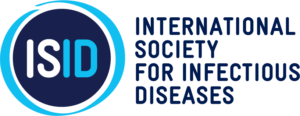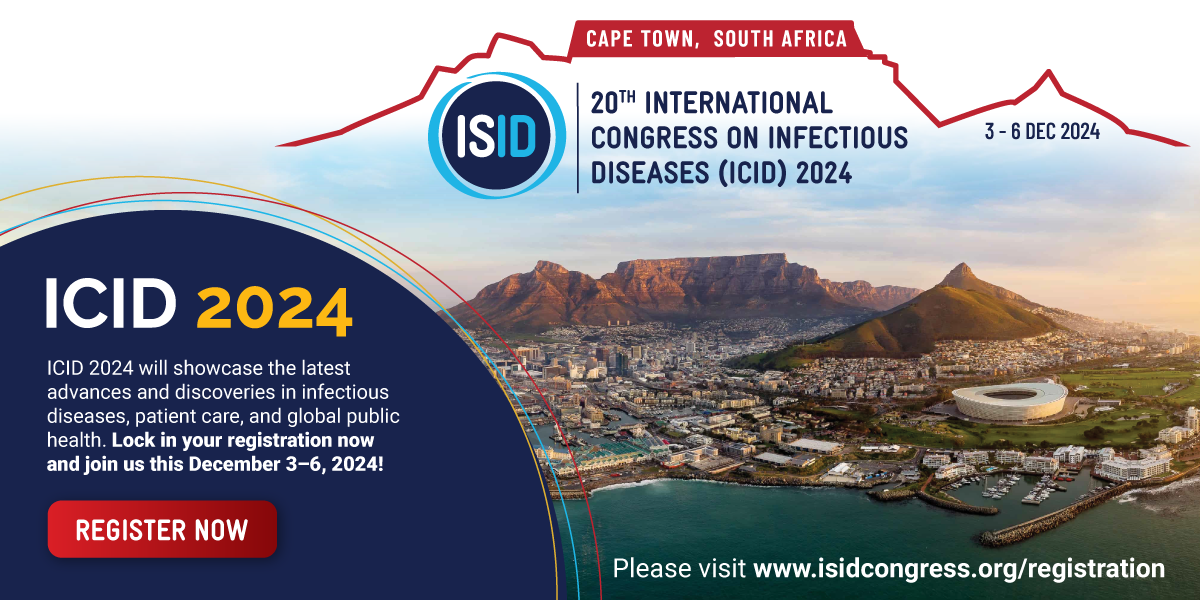ISID urges that governments must prioritize the interconnected health of humans, animals, and the environment, and calls on experts to attend its biennial event, this year hosted in Cape Town, South Africa.
Boston, US. June 19th 2024. Global non-profit, The International Society for Infectious Diseases, has announced its first ever comprehensive list of global health priorities. The priorities have been developed ahead of ISID’s Congress in Cape Town this December, which focuses on low- and middle-income countries (LMICs) grappling with limited healthcare infrastructure, fewer economic resources, and a disproportionate infectious disease burden. The priorities aim to guide the work of scientists, clinicians, researchers, veterinarians, community leaders, and governments in preventing, investigating, and managing communicable disease outbreaks.
The six areas are listed below, and a full description is included at the end of this release:
- The impending threat of antimicrobial resistance (AMR) and untreatable infections
- The interplay of climate change and disease
- Pandemic preparedness, especially in LMICs
- The growing threat of sexually transmitted infections, including HIV
- The persistent challenge of tuberculosis
- Capacity-building for infectious disease research in LMICs
The priorities have been selected based on their increasing urgency and global impact. Each is covered by numerous sessions at ISID’s Congress, which include presentations from Pfizer, Africa CDC, and numerous academic and research institutes. Many sessions will reference the interplay of climate change and disease, highlighting how changes in temperature, precipitation, and habitat disruptions increase the activity of disease vectors, the risk of zoonotic spillover and other drivers of emerging infections. Throughout, the event follows the One Health approach, analyzing the interdependence of human health, domestic and wild animals, and the wider environment. The Society views One Health as an essential framework to address the infectious challenges aggravated by climate change.
“Collaboration and partnership are essential for building a resilient global health ecosystem capable of withstanding emerging outbreaks. Our health priorities provide a clear guide for health and community leaders to focus their resources, while the Congress serves as a space for us to tackle these challenges together,” comments Professor Paul Tambyah, President, ISID. “While health challenges are global, ISID recognizes that local solutions are imperative. Empowering and equipping local stakeholders will ensure more sustainable interventions and lead to better health outcomes. ISID welcomes infectious disease and community health experts to register for this vital public health event.”
The biennial Congress expects to welcome over 3,000 global delegates, with organizations sharing the latest advances in infectious disease research and management. It will feature policy discussions, research showcases, and plenary lectures, including local voices on tailoring health strategies to cultural and economic needs. As part of the focus on local communities, ISID will launch the Ubuntu Community Village (UCV) to spotlight patients’ journeys. The Ubuntu philosophy recognizes interconnectedness, solidarity, and humanity for all. The Village will bridge technical scientific sessions and community action, presenting issues in a clear, relevant, and applicable manner at the grassroots level.
“The world made great strides during the COVID pandemic in prioritizing disease surveillance, with many nations opening national pandemic centers and programs. But infectious disease surveillance in isolation isn’t the answer. A joined-up approach is what’s necessary to fight disease on a global scale. Despite individual countries’ progress, international collaboration and data sharing is still lacking,” comments Linda MacKinnon, CEO of ISID. “By adopting the One Health approach, our Congress provides a unique forum for climate, veterinarian, local community, and human health experts to cooperate on the issues having the greatest impact on public health. We look forward to welcoming attendees, both new and returning.”
Interested parties – including prospective partners, sponsors, and exhibitors – are invited to learn more about the Congress here: https://isidcongress.org/
-----
ISID’s 6 Global Health Priorities 2024
- The impending threat of antimicrobial resistance and untreatable infections
The World Bank estimates that AMR could result in up to US$ 1 trillion additional healthcare costs by 2050. Dubbed ‘the silent pandemic’, the effectiveness of antimicrobials, especially in vulnerable patients , is being gradually reduced. This is the result of the over- and misuse of antibiotics in humans and animals, gaps in infection prevention strategies (especially in LMICs), and the emergence of pandemic clones. Addressing AMR requires coordinated global efforts in all these areas.
- The interplay of climate change and disease
Climate change is altering the habits of vectors like mosquitoes and ticks, prolonging the season such insects are active. This creates greater opportunity for diseases like malaria, dengue and Lyme disease to spread, and reach places which have never experienced outbreaks before. Additionally, the warming of coastal waters is leading to algal blooms, which are believed to be reservoirs of bacteria that cause cholera. Such outbreaks have been increasingly recognized in South Asia.
- Pandemic preparedness, especially in LMICs
Post-COVID, many nations now have ‘pandemic preparedness plans’, strategizing disease surveillance, rapid response, resource allocation, and public communication around outbreaks. Nations must now coordinate their plans and share insights on emerging disease threats. The focus on LMICs is critical, as these nations often bear the highest burden of infectious diseases due to a combination of dense populations, limited healthcare resources, and less infrastructure. Strengthening pandemic preparedness in LMICs will not only prevent regional epidemics from becoming global pandemics but also improve the health of all.
- The ongoing threat of sexually transmitted infections, including HIV
More than 1 million sexually transmitted infections (STIs) are acquired every day worldwide, and in 2020 more than 80% of people living with HIV lived in LMICs. STIs have the potential for significant health consequences, such as infertility and cancer. Despite advances in treatment and prevention, factors like stigma, inadequate healthcare access, and insufficient education still contribute to the continued spread of STIs. Some strains of STIs are also becoming resistant to treatments, such as ‘super gonorrhea.’ Addressing these infections requires comprehensive public health strategies, including education, accessible testing, treatment, and preventive measures such as vaccines, medications and condoms.
- The persistent challenge of Tuberculosis
Tuberculosis (TB) remains a persistent global health challenge due to its complex spread in crowded cities, lengthy and complex treatment regimens, and the emergence of drug-resistant strains. Factors such as poverty, HIV co-infection, and inadequate healthcare infrastructure in many regions exacerbate its spread. Additionally, social stigma and limited public awareness hinder effective diagnosis and treatment, perpetuating the spread of TB.
- Capacity-building for infectious disease research in LMICs
Capacity-building refers to developing and strengthening the skills, processes, and resources that local communities need to survive, adapt, and thrive in a fast-changing world. From a disease perspective, capacity building will promote the self-reliance of LMICs to identify, prevent, and respond to disease outbreaks effectively, while engaging all within the One Health ecosystem. This approach will ensure sustainable health improvements and promote equitable health outcomes worldwide.


